Saudi Arabian Beverages: Basic Overview
Common Ingredients
Common Preparing Methods
Drinking Etiquette
Influence and Fusion
Saudi Arabian Beverages: Origin and Region
Cuisine
Culinary Region
Country’s Region
Classifications of Saudi Arabian Beverages
-
Non-alcoholic Beverages
Non-alcoholic beverages are predominant in Saudi Arabia, featuring a variety of traditional drinks like Arabic coffee, Zamzam water, and fruit-based refreshments. These beverages often accompany meals and social gatherings, playing an integral role in Saudi hospitality and cultural practices.
Saudi Arabian beverages are an essential part of the country’s drinking culture. Predominantly non-alcoholic due to religious observances, these drinks often feature ingredients that are both refreshing and conducive to the hot climate.
Traditional preparation methods emphasize using natural sweeteners like dates and honey, along with aromatic herbs and spices such as mint and cardamom, which are staples in many recipes.
Saudi beverages range from hot, strong coffees and teas, enjoyed socially and during hospitality exchanges, to chilled herbal drinks and fruit-based concoctions. These beverages are a way to showcase the cultural identity and hospitality of Saudi Arabia.
Note that due to Islam, most drinks in Saudi Arabia are non-alcoholic, with alcoholic drinks being restricted and mostly banned.
After the popular drinks from Saudi Arabia, make sure not to miss the best combos of food and drinks from the country.
12 Popular Saudi Arabian Beverages
These 12 drinks from Saudi Arabia feature a wide range of options for you to look at, whether they’re categorized by ingredients, popularity, preparation methods, taste, and other features.
Zamzam Water
- Non-Alcoholic
- National
- Traditional
Zamzam water is a sacred and spiritually significant water in Saudi Arabia, sourced from the Zamzam well located within the Masjid al-Haram in Mecca.
Believed to have miraculous origins from the time of Ibrahim (Abraham) and Ismail (Ishmael), it is considered blessed and has been a part of Islamic tradition for thousands of years.
Muslims from all over the world seek this water for its supposed health benefits, spiritual purity and as a vital part of the Hajj and Umrah pilgrimages. Zamzam water is often used in rites of passage, healing, and daily consumption by those seeking its beneficial properties.
Arabic Coffee
- Non-Alcoholic
- Traditional
Arabic coffee is a fundamental component of hospitality in Saudi Arabia, traditionally served to welcome guests. Known locally as ‘Qahwa,’ this coffee is made from lightly roasted beans, often flavored with cardamom and sometimes other spices like saffron or cloves.
The brewing process is all about boiling the coffee grounds with spices in a pot and sometimes letting it simmer on embers to enhance the aroma. Served in small cups without handles, Arabic coffee is typically enjoyed alongside dates or small sweets.
Sobia
- Non-Alcoholic
- Street Beverages
- Traditional
Sobia is a traditional Saudi Arabian beverage commonly consumed during the holy month of Ramadan but enjoyed all year round. This refreshing drink is made from a light mixture of barley, rice milk, coconut, and is often flavored with cinnamon or vanilla.
Sobia has a milky texture and can be served chilled, providing a soothing experience. It’s typically white or sometimes colored with natural ingredients like saffron for added flavor and visual appeal.
Vimto
- Non-Alcoholic
- National
- Street Beverages
Vimto is an exotic dark purple soft drink staple in Saudi Arabia. Originally a British creation, Vimto is made from a mix of grape, raspberry, and blackcurrant juices, enhanced with a blend of herbs and spices.
In Saudi Arabia, it is traditionally consumed at Iftar time to break the fast during Ramadan. Vimto is often served chilled, providing a refreshing and revitalizing boost after fasting hours.
Laban Ayran
- Non-Alcoholic
- Traditional
Laban ayran is a Saudi Arabian yogurt-based drink widely enjoyed for its cooling and refreshing properties. This yogurt mixture is a combination of water and a pinch of salt for serving chilled.
In Saudi Arabia, laban ayran is a popular accompaniment to meals, particularly with spicy dishes, as it helps to balance the heat and aid in digestion. Laban is especially favored in local households during the hot summer months and during Ramadan for its hydrating qualities.
Qamar al-Din
- Non-Alcoholic
- Traditional
Qamar al-din is a refreshing juice in Saudi Arabia, especially during Ramadan. This apricot mix is made from dried apricot paste dissolved in water with a bit of sugar and rose water to enhance the fragrance aspect.
Usually, this apricot juice is slightly thick, sweet, and full of apricot goodness. In Saudi culture, it is a traditional iftar staple that helps to restore energy levels quickly when fasting.
Furthermore, Saudi Arabians even serve the juice cold for a refreshing feel, besides only infusing it with nuts and dates.
Arabic Tea
- Non-Alcoholic
- National
- Street Beverages
- Traditional
Arabic tea is a staple in Saudi Arabian culture, known for its strong, aromatic brew, often infused with cardamom, mint, or saffron. Locals tend to serve the tea to guests in small glasses rather than cups as a sign of welcome and generosity.
In Saudi Arabia, preparing and serving Arabic tea is an important social activity, frequently accompanying meals and meetings. This tea can be enjoyed plain or spiced, depending on the consumer’s preferences.
Date Juice
- Non-Alcoholic
- Street Beverages
- Traditional
Date juice is a common refreshment in Saudi Arabia, derived from one of the region’s most abundant fruits, known as dates. This sweet juice is made by blending soft dates with water and sometimes adding spices like cinnamon or cardamom to enhance the flavor.
In Saudi Arabia, date juice is consumed during Ramadan to break the fast or served as a refreshing drink.
Camel Milk
- Non-Alcoholic
- Traditional
Camel milk is a common drink choice in Saudi Arabia, valued for its nutritional richness and cultural importance. Interestingly, camel milk is lower in fat and cholesterol than cow’s milk, making it a more healthy choice.
In Saudi culture, camel milk has been consumed for centuries, often enjoyed fresh or fermented. The milk is praised for its exotic profile of slightly salty, refreshing taste.
Jallab
- Non-Alcoholic
- Traditional
Jallab is a Saudi Arabian drink favored during the hot summer months and the festive season of Ramadan. Made from syrup, a blend of grape molasses, dates, and rose water, jallab is diluted and often garnished with pine nuts and raisins.
The refreshment is cherished for its sweet flavor and cooling properties. Often, jallab is best served cold to rehydrate and replenish energy. Its deep cultural ties and delightful taste make it a cherished part of Saudi culinary tradition.
Sahlab
- Non-Alcoholic
- Traditional
Sahlab is a warm refreshment in Saudi Arabia for the cooler winter months and festive gatherings. This comforting drink calls for a base of powdered orchid root, which gives it a unique, creamy texture.
Sahlab is typically sweetened with sugar and flavored with aromatic spices such as cinnamon and vanilla before being garnished with coconut, nuts, and raisins. In Saudi Arabia, sahlab offers a thick, smooth consistency and sweet, spiced flavor.
Tamr Hindi
- Non-Alcoholic
- Traditional
Tamr Hindi is a tamarind drink in Saudi Arabia with a sharp, sweet-sour flavor. This drink is prepared by soaking tamarind in water, then straining it and sweetening it with sugar to balance its natural tartness.
Popular especially during the holy month of Ramadan, tamr Hindi is best-savored cold as a soothing refreshment to break the fast. Because of the tamarind, tamr hindi mainly comes with a murky look along with a brown color.
What Are the Best Food and Beverage Pairings in Saudi Arabia?
When it comes to food and beverages, Saudi Arabian cuisine can produce interesting pairings, thanks to the influences of both beverages from India and those originating from the Middle East. Here are some of these common pairings:
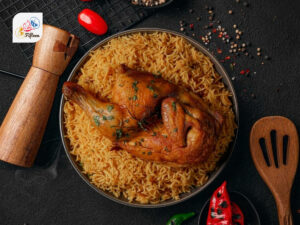
Rice Dishes
Kabsa, a spiced rice dish with meat and vegetables, pairs wonderfully with a glass of Saudi Arabian qahwa (coffee). The aromatic spices in Qahwa enhance the flavors of the dish, creating a harmonious balance.
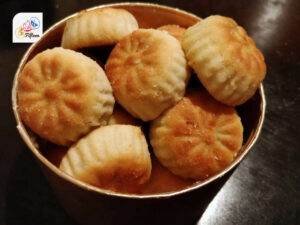
Desserts
Ma’amoul, a filled pastry with dates, nuts, or figs, goes excellently with a cup of date juice. The refreshing taste of date juice further pushes the sweetness of the treat.
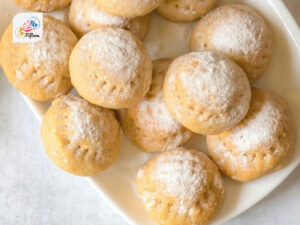
Snacks
Ka’ak biscuits, a type of sweet or savory biscuit often enjoyed with sesame seeds, pair perfectly with a cold glass of laban ayran (a yogurt-based drink). Laban’s creamy and tangy taste complements the crunchy texture of the Ka’ak biscuits.
Most often, the specialties of Saudi Arabia are made to enjoy with various drinks that enhance or cleanse the palate. You can try different combos of food and drinks to find out your best picks.
Which drinks from the desert land of Saudi Arabia are your favorite? Let me know your ideas in the comment section regarding the topic. Make sure to send these unique refreshments to people who are interested in exotic drinks.


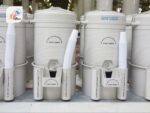




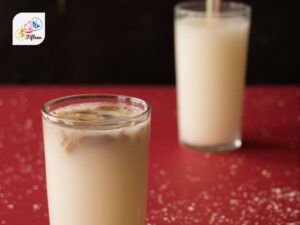
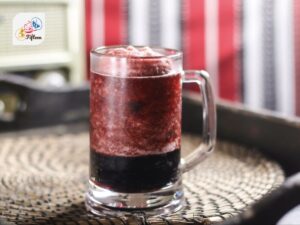
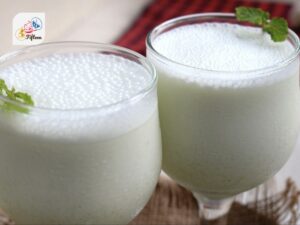
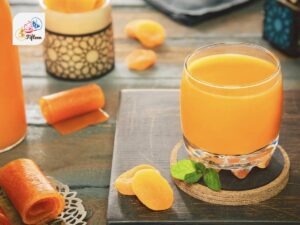
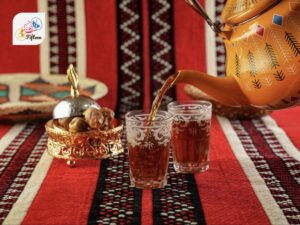
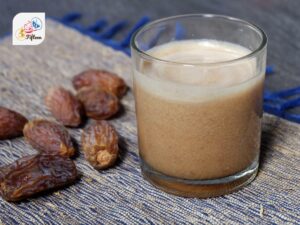
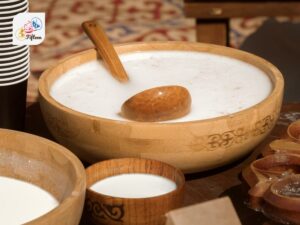
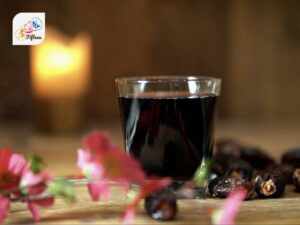
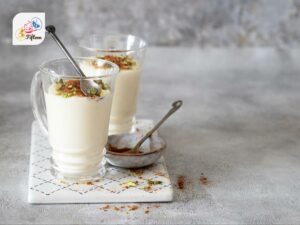
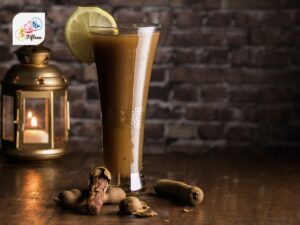

Jamie Scott
Editor in Chief, Senior Content Writer
Expertise
Home Cooking, Meal Planning, Recipe Development, Baking and Pastry, Food Editor, Cooking-video Maker, Western Food Evaluation Expert
Education
Le Cordon Bleu College of Culinary Arts
Local Community College, New York, NY
Jamie Scott is a skilled culinary expert and content creator specializing in Western cuisine. With over 15 years in the culinary field and formal training from Le Cordon Bleu, Paris, Jamie deeply understands how to blend nutrition with delicious flavors. His passion for cooking matches his commitment to making healthy eating accessible and enjoyable.
On Fifteen.net, Jamie brings a fresh perspective to classic dishes and beverages, offering readers insightful recipes, cooking tips, and a fresh view on meal planning that emphasizes taste, health, and simplicity.